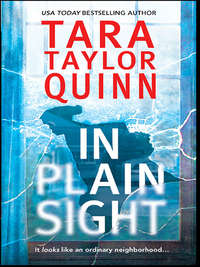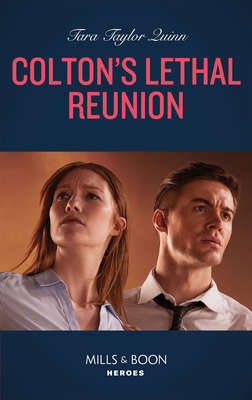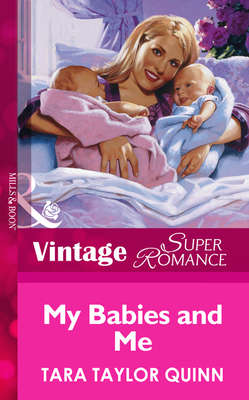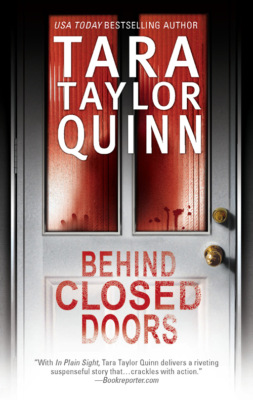Kitabı oku: «In Plain Sight», sayfa 2
2
Flagstaff, Arizona, was a unique place. A little too big, too spread out, to maintain the small-town feel—and too small and secluded to attract big-city folks. Simon drove along old Route 66 toward the town’s one indoor shopping mall, agreeing with FBI Special Agent Scott Olsen’s assertion that this city, with Northern Arizona University’s rambling campus in the middle and a train station not far from the center of town, was a perfect terrorist training depot.
Entering the mall, he located the directory and the store he sought. A potential terrorist could find anything he needed here—and once outside the city limits, on any side, he’d disappear in the miles and miles of undeveloped land, woods, mountains, desert, Indian reservation. Places to get lost—forever if need be.
“Hi, Bettina, show me the best mediocre snow gear you’ve got on sale.” Simon read her name tag and then met the salesgirl’s eyes.
“What do you need it for?” She asked. “Skiing? Snowboarding? Snowmobiling? Or just building a snowman?”
Building a snowman. The last Christmas Sam had been alive, Simon had dragged him away from the half-finished economics textbook his twin had written by hand and was in the process of entering on his computer, and while consuming a six-pack of beer, the two of them had built a snow monstrosity worthy of the Guinness Book of World Records.
“Skiing,” he said belatedly, realizing too much time had passed. He focused on the smiling young face in front of him, his vision clearing, until he was once again seeing a stranger named Bettina in the Flagstaff Mall.
She was nodding. “Too early for the good sales,” she said, walking him over to a group of shelves along the side wall. “Snowbowl’s season doesn’t start until the holidays.” She pointed up. “These are your best bet for now.”
Simon grabbed a set of thermal underwear, then plopped waterproof insulated pants and a matching jacket on top.
“Where you going? Utah? Montana?” Bettina hung around watching.
Hopefully nowhere. “Where would you suggest?” he asked, adding thick socks and toe-warmers, a fleece hat with earflaps and down-lined leather gloves to the stack in his arms. He had to be prepared. Snow-bowl might not have snow yet, but the resort just miles from Flagstaff was open year round and was currently drawing FBI suspicion.
Hands in her back pockets, she ran her gaze along his body. “How good are you?”
Champion quality when he’d left Philadelphia almost eight years before. “Good enough,” he told the slender young woman standing before him. Good enough for anything she might have in mind.
But “in mind” was as far as it went with him.
“Hey, Ma, how you doing?” Turning on lights as she let herself into the living room of her mother’s prefabricated home, Jan quickly took stock of the pulled blinds, the pillow and blanket on the couch.
“Good, sweetie, really good.” Grace McNeil stood, finger-combed her scattered hair and gave Jan a hug.
“You didn’t go to church this morning?”
“I forgot I was out of gas until it was too late.”
Grace’s clothes were wrinkled, the beige slacks and colorful blouse Jan had bought for her birthday resembling something from a secondhand shop rather than the designer outfit it was.
“How was bingo last night?”
Grace shrugged.
“You didn’t go?”
“How was your week, dear?” Dropping back onto the couch on which, Jan suspected, her mother had recently been sound asleep, Grace picked at her fingernails.
“Ma, Saturday night bingo was one of our deals. Remember? I’d help out, and you’d stay busy. You promised.” Her mother had been so adamant about moving to the Sedona resort.
Grace’s face was lined with pain. “I ate something that didn’t agree with me,” she offered Jan as an explanation.
Jan wasn’t sure whether to believe her or not. “What about Thursday’s mah-jongg game?”
“Didn’t do so good at first, but then I had Thirteen Orphans.” Grace’s face lit up. “That was the first time any of us saw it happen.”
Jan had never played mah-jongg—she found the tiles and flowers and dragons confusing—but her mother had a passion for the game. And after her most recent suicide scare a couple of years before, Grace’s passion for anything was a blessing.
“Did you play here?” she asked, glancing around the room, which was neat and spotlessly clean—except for the blanket and pillow.
“Yeah, it was my turn. Sara couldn’t make it, but Belle had a friend staying with her who wanted to come. And Jean was here.”
Jean lived in the modular next door—about twelve feet away from the aluminum side of her mother’s two-year-old home.
“Have you seen her since then?”
“We had lunch on Friday. And she stopped by last night, on her way to bingo. We were going to ride up to the clubhouse together.”
So…maybe her mother really had just had a stomachache. At sixty-two and with Crohn’s disease, she was certainly entitled. Settling back into the reclining chair adjacent to the couch, Jan kicked off her clogs and pulled her feet up, cross-legged, on jean-clad thighs.
“How are you feeling now?”
“My stomach’s fine,” Grace said with a chuckle. “My pride would’ve preferred that I slept in my bed last night rather than in my clothes on the couch. Or at least to have woken with enough time to shower and change before you got here.”
Jan released a long breath. Grinned. Everything was normal.
“What do you want to do for dinner?” she asked. Her mother hadn’t sunk back into the darkness of depression that had almost killed her ten years ago and again more recently.
But that had been before Sedona. Before her mother had daily activities and friends to keep her mind occupied.
Since the move, the anti-depressants had been more successful.
Jan really needed to learn to quit worrying so much. To relax.
“I thought I’d make a meat loaf, since it’s your favorite, and I bought fresh peaches to make cobbler…”
Jan was lucky her mother put up with her. She probably would’ve lost patience with such nagging years ago.
“I had one of my nightmares the other night,” Jan told her mother later that day, as she finished off the last bite of peach cobbler. They’d already talked about Johnny, who’d called, but hadn’t come by yet. And Hailey— Grace was anxious to meet the troubled eight-year-old Jan was trying to adopt, completely supporting Jan’s need to start her own family in this untraditional way.
Grace, who’d showered, put on makeup and was now wearing a soft green pantsuit, scraped her spoon across her plate, cleaning up every remaining morsel of dessert. “Tell me about the dream,” she said.
Jan did. In all the vivid detail she could remember. “I’m afraid I’m going crazy,” she said softly, as she glanced at her mother.
“Of course you aren’t,” Grace replied, rising to stack their plates. She carried them over to the small dishwasher on the other side of the half wall that separated the living and dining area from the kitchen. “How many professionals have to reassure you before you start believing, girl?”
A million and one, Jan supposed. Since she’d already seen what seemed like a million.
“The nightmares are so real. And the feelings stay long after I’m awake. It scares me, Ma.”
Drying her hands on her apron, Grace returned with a pot of coffee and filled both their cups. “I know they do, sweetie,” she said, covering Jan’s hand.
Jan soaked up the closeness. The security found in the touch of her mother’s hands.
“The fear is what makes them nightmares,” Grace continued. “But that’s all they are, honey. Bad dreams. They simply mean that you have an active imagination.”
She’d heard the words so many times before. And still she listened intently.
“They’re nothing to worry about. You know that. If I thought differently, I would’ve scoured the country years ago, paid whatever it cost, to rid you of them.”
“I know.”
“And being upset by them is natural, too,” Grace added. “Just like watching a horror movie that sticks with you for days afterward.”
Yeah, only her horror movies were private—and homemade.
She glanced up at Grace, finding strength and comfort in her mother’s gaze. “Thank you,” she said, letting go of the fear. Once again.
“I love you, my dear,” Grace said, giving her hand a squeeze.
“I love you, too, Ma.”
“I’ll have the barbecue chicken sandwich with coleslaw.” Bobby Donahue, founder of the Ivory Nation, said, smiling at the young Mama’s Café waitress on Sunday evening. “And a Diet Coke, please.”
And then, the Ivory Nation brochures he’d commissioned tucked neatly in the zipped folder beside him, he made a mental note as his dinner guest ordered a burger and fries. The kid was seventeen, the nerdy type, but he had the power of his convictions. It would’ve been a strike against him to tell the waitress that he’d have the same thing Bobby had ordered. He needed spiritual followers, not copycats.
“Tell me about yourself,” he said, holding the young man’s gaze. Tony Littleton maintained eye contact. Another mental check in the “go” column.
“Not much to tell,” the high school senior said. “Dad took off when I was a kid. I don’t remember much about him. No brothers or sisters. Mom works a lot—has a boyfriend, nice guy, but he’s into sports.”
No close family ties. It all fit.
“What about friends?” Bobby expected that he knew the answer to this one. He’d figured out the basics of Tony’s existence, if not the details, from his chats with him online.
“I’ve never been the most popular guy in school,” Tony said with a shrug. “I’m no good at sports, not that great looking, I get good grades even when I don’t particularly try. I’m a science whiz, and I write for the school paper. Mostly all stuff the cool kids avoid.”
No close friends. Just as Bobby had suspected.
“What kind of stuff do you write?” Tony hadn’t mentioned that particular talent in their previous conversations.
“Mostly editorials.” Tony took a deep sip of the lemonade that had arrived while he was talking. “I see something that bugs me, and I write about it.”
Bobby leaned back, his hand resting against his mouth. “What bugs you, Tony?”
“Injustice.” The boy’s response was strong, his expression firm.
Bobby smiled and unzipped his portfolio.
“All rise.”
Pushing the heavy wooden chair back from a scarred table, Jan stood at the bailiff’s direction, along with the fifteen or so other people in Judge Matthew Warren’s court, just after lunchtime on Monday.
The fiftysomething judge entered through a door behind his bench. “Be seated,” he said. His black robe covered the arms of his chair.
When she’d heard that the Hall case had been assigned to Warren, Jan had opened a bottle of champagne. She’d argued before him many times and had found the man to be fair almost to the detriment of his career. Matthew Warren didn’t seem to care whose money was involved or how much might be at stake; he didn’t respond to threats or power, and he had never played a political game in his life, as far as she could tell.
He asked if the state was ready.
“Yes, Your Honor, the state is ready.”
He looked to opposing counsel for the same confirmation, and when Gordon Michaels, seated at the table across the aisle from Jan, answered in the affirmative, he called the case number. Jacob Hall stood and was released from the chain that bound him to the state’s other four guests in the jury box, which also served as the courtroom’s inmate seating section. He grinned as Warren’s deputy led him down to the podium three or four feet below and directly in front of the judge. Michaels joined him at the microphone. Jacob didn’t seem to notice.
“Gordon Michaels for the defense, Your Honor. This is my client, Jacob Hall.”
The defense attorney shifted his weight a couple of times. He looked a little tense.
Jan stood again. “Jan McNeil for the state, Your Honor.”
Judge Warren nodded, leaned toward the microphone set in front of him and ran through his spiel for the record, citing the case number and stating that he’d read the motions.
Jan checked her notes, rehearsing her justifications for denying Michaels’s motion to suppress evidence found on Hall’s personal computer.
Glancing up, she caught the defendant staring at her. And she knew he was looking forward to eating her piece by piece—in private—without clothes on. His eyes had fire in them. And a lascivious glow. It was almost as if she could hear him speaking to her—as if the room held just the two of them.
She stared back.
Warren read aloud the motion before him, asking Michaels if he had anything to say on behalf of his client. A cough came from behind her, a spectator. Someone there to watch Jacob Hall’s proceedings, or a supporter of one of the other inmates waiting for his case to be called? She didn’t break eye contact with the defendant to find out.
“Your Honor.” Michaels’s voice was clearly audible. “The warrant to seize my client’s computer was based solely on a tip given to a police officer, Detective Ruple, by a supposed confidential informant. We have absolutely no proof that any such individual actually exists and, in fact, we have reason to believe otherwise. Mr. Hall lives alone. The computer in question is a desktop unit that he keeps in the spare bedroom of his apartment, and only he has access to it. Even if someone was in that room without his knowledge, that person would not have been able to access the information on Mr. Hall’s hard drive, as he had it password-protected and he has given his password to no one. Further, Mr. Hall has spoken to no one about the contents of his computer. Thus, it is clear, Your Honor, that there could have been no informant who knew about that content. The constitution of this great nation protects not only my client but all of us from illegal search and seizure. What kind of society do we live in if, at any moment, anyone flashing a badge can enter a private home and take whatever he pleases? Our job is to protect the public by upholding the constitution, and Detective Ruple’s search of my client’s home was in direct conflict with that great document and the laws made since to support and clarify our forefathers’ intent. Yes, Detective Ruple had a warrant, but one gained solely on the word of a ghost. I ask that you suppress the evidence taken from Mr. Hall’s apartment, Your Honor, including any and all information found on his computer.”
Jan tried to breathe calmly during the brief silence that followed, refusing to be intimidated by Hall’s visual assault and hating the apparent logic of Michaels’s argument. She couldn’t win this case without the evidence taken from Jacob Hall’s personal computer.
“Ms. McNeil?”
The judge called on her, and with a last grin, Jacob Hall turned his attention back to the proceedings at hand. Jan stared at the defendant’s back for another second or two, just to make it clear, if only to herself, that she hadn’t been the first to look away. She was going to win this case.
Hands shaking, she stood.
“Your Honor, the state believes Mr. Hall is a member of the Ivory Nation.” Judge Warren’s nod indicated that he was familiar with the name. The Ivory Nation was one of Arizona’s largest white supremacist organizations and its involvement was suspected in several unsolved murders and numerous other felonies.
“Anyone who’s going to come forward with information against any member of such a group would be putting himself at almost certain risk of retaliation if his identity was disclosed—”
“Mr. Hall’s private memberships have not been proven, nor are they on trial here, Your Honor,” Michaels broke in.
“There was an article in the press two weeks ago and again on Friday,” Jan continued, as if the opposing counsel hadn’t spoken, “claiming Mr. Hall’s alleged association with the Ivory Nation.” The calmness of her voice belied the pounding of her heart. “The state was not responsible for that information, Your Honor, but whether the allegation is true or not, there are now many who believe it. Police officers’ use of informants is common practice,” she said. “Based on evidence gained from informants, we’ve been able to protect the citizens of this state by apprehending, prosecuting and removing from the streets many dangerous threats to society. And how can we ask these citizens, who are willing to come forward for the good of all, to do so without also granting them the protection we seek to provide every citizen? Detective Ruple has been with the Flagstaff police department for twenty years, Your Honor. His record is impeccable. He’s made more arrests than anyone else on the force. But those arrests mean nothing to the people of this state if we don’t support them by prosecuting offenders to the full extent of the law. The use of confidential informants is allowed under the law, Your Honor. I ask that you deny Mr. Michaels’s request.”
Judge Warren was reading something in the file in front of him.
Jacob Hall stood without moving, facing forward, his hands cuffed together in front. The observers behind her maintained a stillness that seemed almost automatic, in deference to the powerful man seated in front of them all.
If he doesn’t grant it, you’ve still got ninety days, Jan reminded herself silently. He did the crimes. You’ll find another way to prove it.
She couldn’t let emotion diminish her ability to think with agility and focus.
“You both make valid points.” Warren’s voice cracked the uneasy silence that had fallen. “I find that I can neither grant the motion nor refuse it, with the limited information provided. Therefore, I’m setting an evidentiary hearing on this motion to be held no later than two weeks from today.” He glanced at Jan, and at his frown, her heart sank.
“Ms. McNeil, bring in your cop and have him fully prepared to give specifics regarding this confidential informant.”
Damn. Damn. And damn. “Yes, sir.”
“Counsel, please approach.”
Without so much as a peripheral glance, Jan passed Jacob Hall, and with Michaels at her side, she stood before the judge’s bench. It took only a few seconds to confer over dates and the hearing was set for Monday, two weeks hence, at eight-thirty in the morning.
She had two weeks to convince a cop with twenty years on the job to do something he’d never done before. Something that could endanger his own life, and the life of someone he’d given his word to, as well.
3
The phone rang moments before the first bus was due to drop off Simon’s youngest group of neighbors on Tuesday afternoon. He glanced at caller ID and then back at the screen in front of him. With a click, he maximized the manuscript he’d minimized in order to play freecell, covering the game he hadn’t won yet rather than closing it. He had a ninety-one-percent win ratio and he wasn’t about to see that drop because he’d quit a game.
Going rate for methamphetamine in Arizona (prices vary by state).
Simon read what he’d written half an hour before and waited for the ringing to stop. He checked the time in the lower right corner of his screen. Two minutes until the bus. Fingers on the keyboard, he deliberated over bullet choices. Made a decision. A pointing finger.
1/4 gram—$25.
One minute until the bus. The phone sounded again. Same number. The FBI agent was persistent. He picked up.
“Hello, Olsen. What can I do for you?” Simon said, eyes focused on the corner outside, waiting for the bus. After all, what else did he have to do with his day but munch on carrot sticks and watch other peoples’ kids get safely home from school?
“A map found at the Snowbowl corroborates the girlfriend’s story.”
Simon didn’t say the choice words he was thinking. “Who found it?” How legitimate was it?
“Full-time custodian. An older guy who’s been there close to ten years. Keeps to himself. He was cleaning a locker and found the folded sheet caught between two pieces of metal at the bottom.”
“Like it was planted there?”
“Like it dropped out of something.”
The better of the two scenarios.
“Someone lost it and doesn’t know where.”
“That’d be my guess.”
“Who used the locker last?” Not that it mattered to him. He hadn’t agreed to anything.
“A student of Leonard Diamond.”
The white man with the background that was apparently untraceable, or was traceable to contradicting places, who privately trained cross-country skiers and paid the Snowbowl for use of the facilities. Or so he’d said. The FBI had a tip that suggested something different.
“Was the student male or female?”
“Male.”
“An old piece of paper obviously left behind. Why did the custodian keep it? Turn it in? Why not just throw it away?” Those questions belonged to the agents and local police detective on the case, not to Simon. He didn’t want them.
“It incorporated every inch of the Snowbowl property, but it wasn’t like any other map of the Snowbowl he’d ever seen. The trails on the map aren’t standard Snowbowl trails. The way they’re engineered, only the most proficient skier could hope to master them or even make it over them alive. Turns out they aren’t sanctioned, which means they shouldn’t exist. The map was detailed, computer-generated, possibly one of many. Snowbowl officials contacted us.”
“Someone spoke to Diamond?”
“Never saw the map before in his life.” Scott Olsen’s mimicking voice made clear his lack of trust in the other man’s word.
“And the student?”
“Quit the class.”
“Let me guess,” Simon said. “The guy left no forwarding address and Diamond had no personal information on him.”
“Correct.”
“So how does a map of nonexistent trails tie in with a disgruntled girlfriend’s tale of hearing about terrorist training?”
Simon didn’t want to know. Deep in his soul, if he still had a soul, he didn’t want to know.
“Marking the beginning and ending of each trail was an emblem. A circle with three crosses in the top half and a blackened dagger at the bottom.”
Just as Amanda Blake—the disgrunteld ex-girlfriend of an acquaintance of Diamond’s—had told it.
“I’m not the right man for this job.”
“You had a master’s degree in law enforcement at twenty-three and you were one of the youngest under-cover agents the FBI ever had. You have antiterrorist training.”
“That was a long time ago.” And ultimately all that preparation had been useless.
“I have no idea how far this thing reaches, how many people could be hurt. This gets out now, and the local police have a city in panic. I need a very discreet professional look-see. You’re the only one I trust.”
Simon closed his eyes, consumed with remorse. And then opened them again, seeing nothing but the clean notepad he’d pulled out of the bottom drawer. “You said Amanda Blake is a waitress at the Museum Club?”
“Yes.”
“I’ll go tonight.”
“Glad to hear it,” Scott Olsen said. “Anything you need, Simon, anything at all, you just let me know….”
Simon nodded, his throat tight. “As always, awareness of my role here is on a life-or-death, need-to-know basis only.”
“Of course,” Olsen said. “Not even the local police will know.” And then he added, “Thank you.”
“I’m a thankless guy, Scott. I thought you were smart enough to figure that out.”
He hung up. Glanced out the window. He’d missed the bus.
“Andrew, where’s the Zeidel file?” Sitting at her desk, Jan called to the attorney she’d hired straight out of law school several years before. He’d been her most trusted assistant and colleague ever since.
“I left it on the corner of your desk,” the red-haired young man said, appearing at her door. As usual, they were the only two people left in the office at almost six o’clock on this Tuesday evening. “Right where I always leave everything.” He came over, his brown slacks loose on his slim body, his tie perfectly knotted and dropping forward as he leaned down to sift through the pile he’d left in the box on her desk.
“I’ve already been through it twice,” Jan told him. She’d figured out a way to get Danny Ruple to cooperate with her. And as soon as she had that piece of business taken care of, she could go home. Check her mail. And if she wasn’t too late, enjoy some of her neighbor’s nonsense before dinner.
“I pulled it before lunch,” Andrew told her, frowning. “Right after we talked about making the deal with Ruple.”
Jan was going to do something she’d never done before; charge and prosecute a defendant solely on a detective’s hunch—and the circumstantial evidence she’d collected when she’d tried to bring the case to justice two years before. She’d probably lose and waste the state’s money on a long and grueling jury trial. But if bringing in the man Ruple was sure had raped and brutally murdered U of A student Lorna Zeidel, a couple of years before would get her Hall’s conviction, she figured the state would be getting its money’s worth.
Andrew continued to rifle through the files.
“Maybe someone put it back,” Jan suggested. Files did not disappear in the county attorney’s office. And Andrew was too obsessive to admit that he might only have thought he’d put the file on her desk. He was usually too efficient to have forgotten. But he was also an exhausted first-time father—to a newborn who wasn’t sleeping through the night.
“Who would’ve done that?” He had the entire box in one arm as he sorted through it, piece by piece.
“I don’t know.” She didn’t. Nancy, her secretary, would never take a file from her desk. Nor would anyone else. “But could you check?”
“Maybe it fell in the trash.”
From the far right corner of her desk to the near left one? Andrew’s statement validated her exhaustion theory. She would’ve teased him, if she’d thought he had enough energy left to get the joke. Or if she wasn’t bothered by his apparent carelessness.
“You check the file room and I’ll go through the trash,” she said instead, pulling the metal bin out from beneath her desk.
Half an hour later, Jan accompanied Andrew from their third-story office, past the potted plants on the ground-floor atrium, to their cars in the parking lot by Cherry Avenue. It was a nightly ritual, one Andrew insisted upon.
The file, containing all the notes Jan had collected on Lorna Zeidel, was still missing.
And Ruple had not been called. Jan was looking forward to the frozen dinner waiting at home for her.
Jan almost stopped at the mailbox as she drove in, rather than parking her car in the garage first. Not because she thought it would be safer or because she was turning over a new time-management leaf, but because she was thinking of Simon and he’d suggested she do so. Not that she expected anything from her friendly neighbor, ever, but tonight she was kind of depleted and could use some of his easy humor. Easy, because he expected nothing in return. No borrowed cups of flour. Or chats on the lawn. Or dates.
Of course, the cup of flour she’d be happy to give him. Jan grinned, as she waited for the automatic garage door to rise a few slow inches at a time, picturing him in the kitchen, making cookies with as much sloppiness as he showed in the way he dressed. She’d hate to have to clean up that mess.
The overhead light popped on as the door opened and Jan started to pull forward, but then stopped. What was that shiny substance on her garage floor? It hadn’t been there that morning.
Putting the car in Park, she got out, not frightened but tense as she moved closer. It looked like glass. There were shards everywhere. A glance at the window showed her where it had come from—there was a hole the size of a softball through the middle of the pane. Had some neighbor kid thrown a wild pitch? It happened. And it could be fixed.
Then she saw the brick on the opposite side of the garage and her heart began to pound. No way could this be part of a ball game. Whoever had thrown the heavy object through her window had done so with enough force to embed it in the drywall on the far side.
“Don’t touch it.”
Yelping as she swung around, Jan almost dropped with relief when she realized the voice was Simon’s. “I wasn’t planning to,” she told him. “This doesn’t look like an accident, and I know better than to tamper with evidence.”
“You want me to call the police?”
She shook her head. “I’ve got this cop friend downtown,” she quoted an old play, making light of the fact that she’d just come home and found her property vandalized. It was a brick through a garage window, she told herself. Certainly not life-threatening. Or even particularly damaging.
Her nervous system was overreacting. Dialing the downtown precinct, Jan told them what had happened and was grateful when they said they’d send someone right over.
“I’m sorry I scared you,” Simon said, as soon as Jan got off the phone. “When you didn’t show up at the mailbox and I saw your car in the garage, I got curious.”
“I’m glad you did,” she admitted, a little shaky. “It’s creepy standing here alone, knowing someone was here while I was gone, vandalizing my stuff.”
A window wasn’t all that much. But the guy couldn’t have known what else might be in the garage.
Of course, if he’d meant to do real damage, he’d have thrown the thing into the house, making all her possessions fair game.
“You been working on anything in particular that would piss someone off?” Simon asked, sitting beside her on the stoop in front of her house as they waited for the police. She’d called from her cell phone and was still holding it in her hand. Just in case.
A vision of the way Hall had looked at her the day before flashed through her mind. She shook her head. Twice. “Nothing out of the ordinary,” she told her neighbor. No sense in giving life to fear. It only became truly dangerous when it was given the power of acknowledgment.
Ücretsiz ön izlemeyi tamamladınız.










